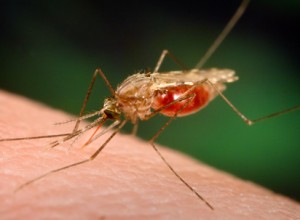Ghana needs $961m to eliminate malaria by 2029
 Health experts have projected that about $961 million is needed to sustain national efforts toward eliminating malaria in Ghana by 2029.
Health experts have projected that about $961 million is needed to sustain national efforts toward eliminating malaria in Ghana by 2029.
The National Strategic Plan (NSP 2021-2025) has a funding gap of $412 million to support malaria elimination to avoid the dire consequences, particularly on children and pregnant women.
Dr Salifu Bawa who works with the Public Health Department of the Cape Coast Teaching Hospital (CCTH), said globally, the World Health Organisation (WHO), had estimated that about $10 billion was needed to implement national strategic plans for malaria eradication in 30 African countries over the next three years.
He was addressing a malaria awareness seminar organized by the Central Regional branch of the Pharmaceutical Students’ Federation of Ghana (PSFG) in Cape Coast.
The seminar formed part of activities by the Association in commemoration of World Malaria Day” on the theme: “Advance Equity. Build Resilience. End Malaria.”
Dr Bawa, said in 2019, total funding reached $3 billion against a global target of $5.6 billion, leading to critical gaps in access to proven malaria control tools.
For that matter, he called on stakeholders in the fight against malaria to step up the game to save more lives saying: “It is not acceptable that thousands of people, mainly children and pregnant women continue to die needlessly of malaria.”
Unless countries find innovative ways to mobilize adequate resources to bridge the funding gap, malaria will likely take many more lives on the continent.
He said malaria, though deadly, was a preventable disease that should not kill anyone, noting that “it was not the time for countries with high burden of malaria to lose grounds.”
Sub-Saharan Africa continued to carry the heaviest malaria burden, accounting for about 95per cent of all malaria cases and 96 per cent of all deaths in 2020.
In Ghana, the Volta and Western regions have the highest malaria burden, combining to account for 47.4 per cent of the country’s prevalence rate.
In that regard the symbolic choice of Hohoe for this year’s World Malaria Day celebration was linked to the fact that the municipality was one of the six malaria pre-elimination areas in the country.
This indicates the progress made in reducing the incidence of malaria over a number of years through the effective implementation of multiple interventions.
“Sleep under a long-lasting insecticide-treated net every night and throughout the night, ensure you test for malaria before treatment and complete your malaria treatment as prescribed,” he advised.
Mr Daniel Ako Charway, Health and Projects Coordinator for PSFG, called for concerted efforts to control malaria through constant education by stakeholders.
The PSFG, he noted, remained a key advocacy organization for pharmacy and pharmaceutical science students and recent graduates in Ghana.
It seeks to promote improved public health through the provision of information, education networking and a range of publications and professional activities.
“Our flagship programme is the national Drug Safety and Health Awareness Campaign, which has been going on since 1980 to promote safe drug use, helping students by improving their knowledge about drugs, building confidence and promote volunteerism,” Mr Charway added.
Source: GNA
